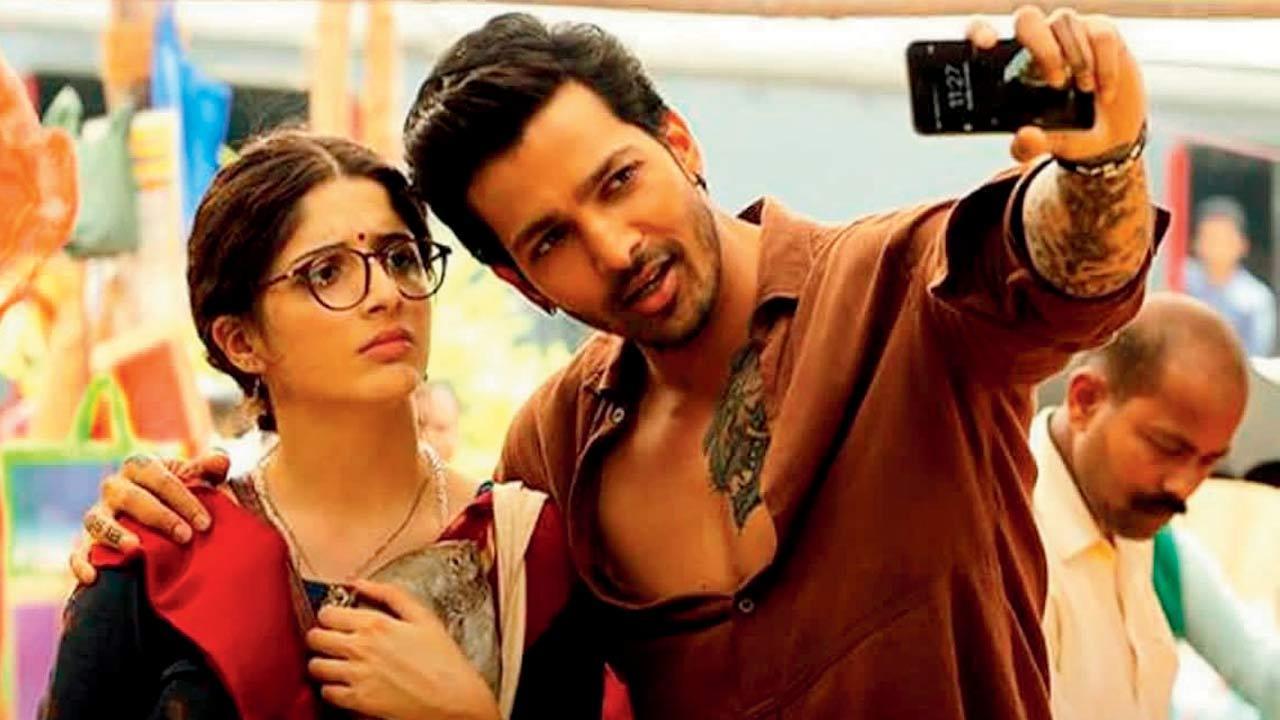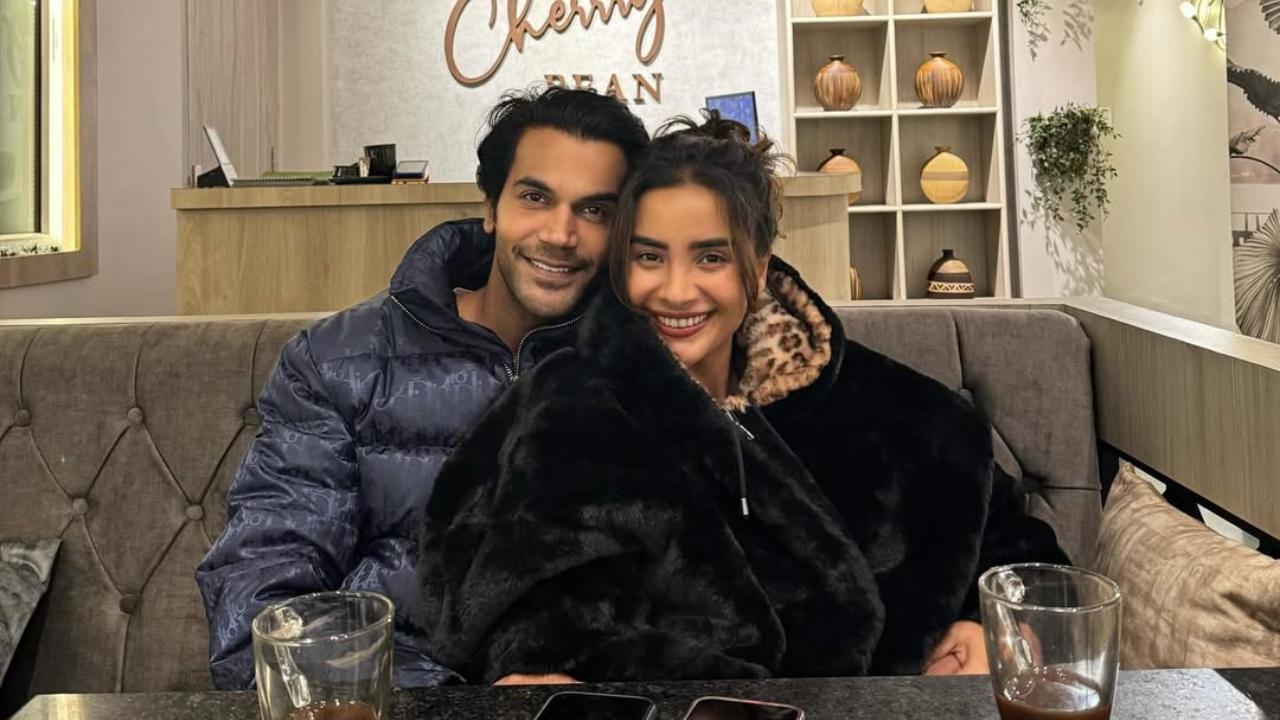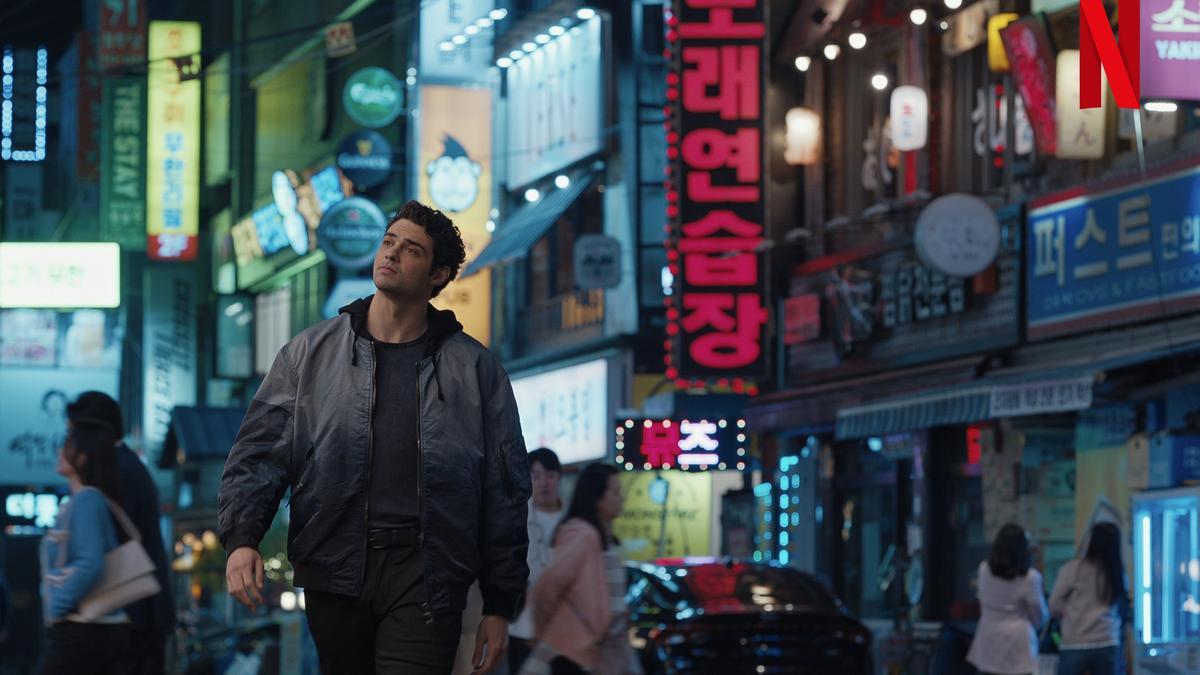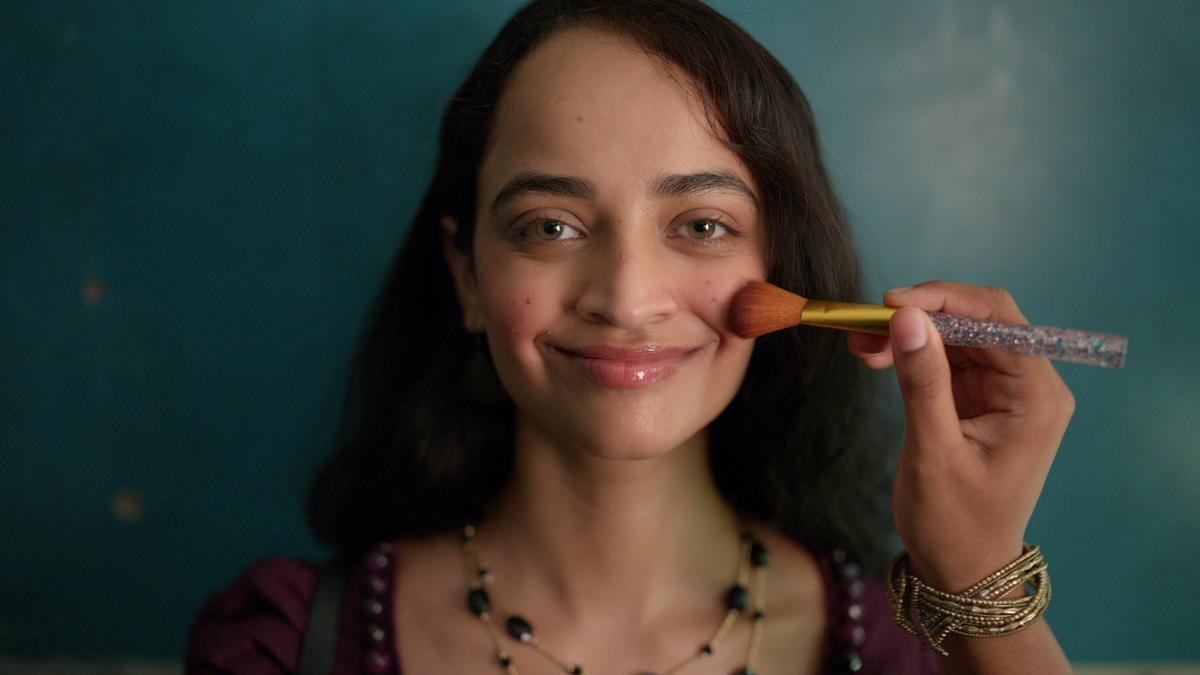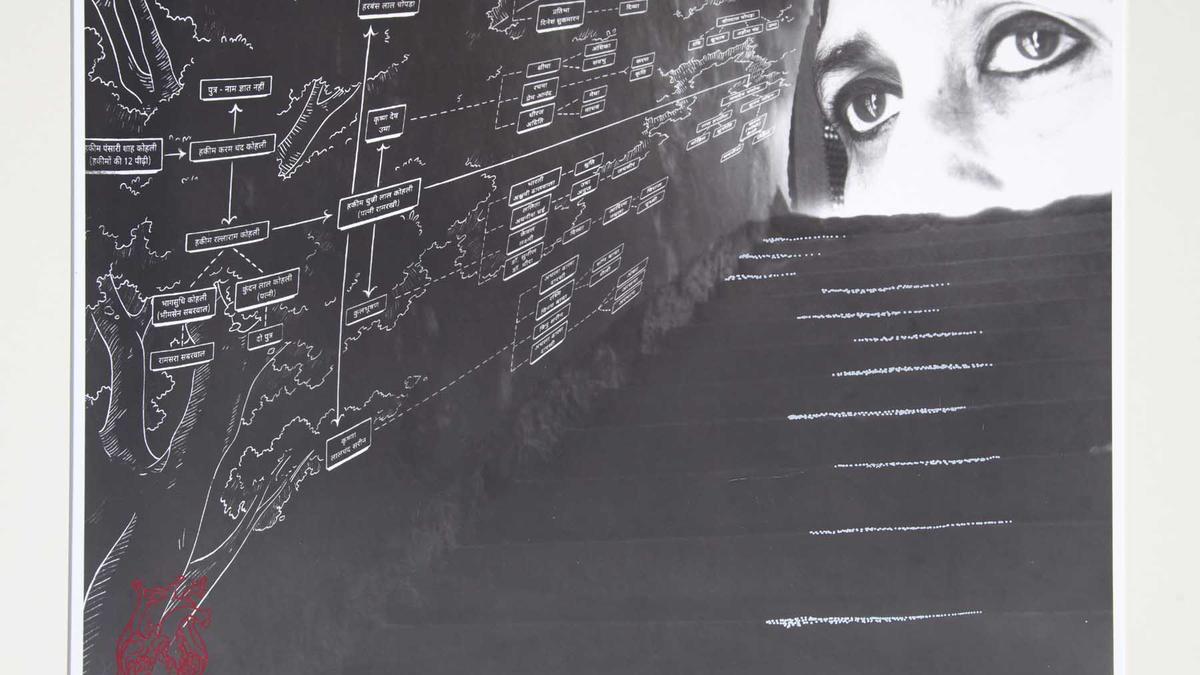
Nostalgia need not always be painful. Russian novelist Vladimir Nabokov (1899-1977) said “One is always at home in one’s past…” This sums up the ongoing multi-media solo exhibition of seasoned artist Seema Kohli “Khula Aasman” in the Capital.
Talking about the project, she says, “I am articulating a tenuous link to a home that my father never returned to. This project is deeply personal, nonetheless, reveals the ephemerality of all belonging.” The varied works connect Kohli with her past, forefathers and ancestral home in Pind Dadan Khan (now in Pakistan’s Jhelum district).
Artist Seema Kohli with her work Gulab ke khet
| Photo Credit:
SPECIAL ARRANGEMENT
Bridging of the past and present is exhibited in the silver gelatin prints. Using images clicked by her father, KD Kohli, the artist has added colour, ink and pen drawings, some pictures from her archives and recent ones of Pind Dadan Khan by Maria Waseem, providing a fresh perspective. The baraat of her father passing through New Rajendra Nagar’s Shankar Road is framed in the arch of the Shiva temple of Pind Dadan Khan. Urdu poetry and heart motifs on these prints make them engaging. Many of the original pictures are of Seema’s mother Uma who was her father’s muse.
The works portraying the journey of Kohli’s family from Pakistan to India are also fascinating. One shows a train, which was a vital means of transport for refugees during Partition, along with the image of Seema’s studio when it was being constructed, thereby connecting the past with the present. Partition’s barbaric facets are depicted subtly by axes and a shrouded body. Equally riveting is the work juxtaposing Seema’s ancestral house with her New Rajinder Nagar residence wall with images of her grandfather and his friends between the two structures, signifying the passage of time.
Untitled, hand painted with Fuji photo colour on unique silver gelatin print at Khula Aasman exhibition by Seema Kohli
| Photo Credit:
SPECIAL ARRANGEMENT
Works highlighting Kohli’s family occupation of hikmat or practice of Unani and Ayurveda medicine are also exhibited. One lists the eight generations of doctors in the family, ending with her grandfather, Hakim Chunni Lal Kohli. Seema’s eyes on the top, looking at the names of her illustrious forefathers, reflect admiration and awe.
The installation reproducing the Appendix from one of her grandfather’s books – Makhzan-i-Hikmat — illustrates the range of treatments offered by Unani and Ayurveda as well as allopathy for varied diseases including cholera, dysentery, and influenza.
Untitled, hand painted with Fuji photo colour on unique silver gelatin print at Khula Aasman exhibition by Seema Kohli
| Photo Credit:
SPECIAL ARRANGEMENT
A charpoy (bed) covered with a bedsheet showing belladonna herbs and a pill-making machine provide the ambience of a dawakhana. The 12 works outlining the herbs used for preparing medicines, their scientific names, and properties along with glass jars containing murabbas and gulkand, and anatomical drawings of body organs like heart, liver, and lungs, take one to an era when this indigenous medical system was thriving.
Untitled, hand painted with Fuji photo colour on unique silver gelatin print at Khula Aasman exhibition by Seema Kohli
| Photo Credit:
SPECIAL ARRANGEMENT
The show’s essence comes alive in Seema’s Gulab Ki Khet (acrylic colours and ink on canvas with 24-carat gold and silver leaf). She has painted the blooming rose fields of Choa Saidan Shah, a town in Punjab Province of Pakistan, and showing camels used by the pilgrims to visit shrines at Katas Raj at the back. Beyond these stand the mighty Hindu Kush mountain range and the birds soaring in the sky pointing at the futility of man-made borders.
Talking about Khula Aasman, the artist describes it as a “project of memory of memories”. She says, “I feel that the book Mitr Pyare Nu (KD Kohli’s autobiography) was cathartic for my father and the same for me with Khula Aasman, which is based on my father’s autobiography. It was reliving my father’s memories.”
(On view till February 18 at Seema Kohli Studio, B 85, Pocket X, Okhla Phase II, 11 a.m. to 6 p.m. daily)
Published – February 07, 2025 05:06 pm IST
The Hindu MetroPlus
/
arts, culture and entertainment



